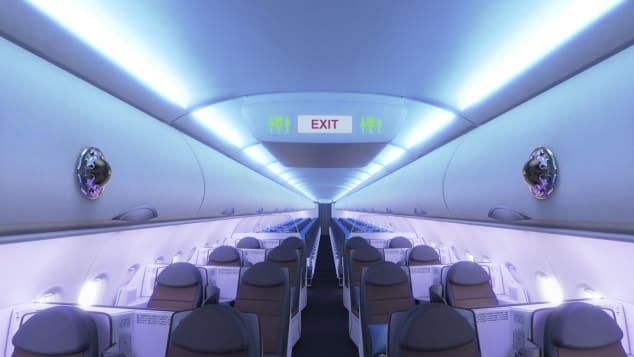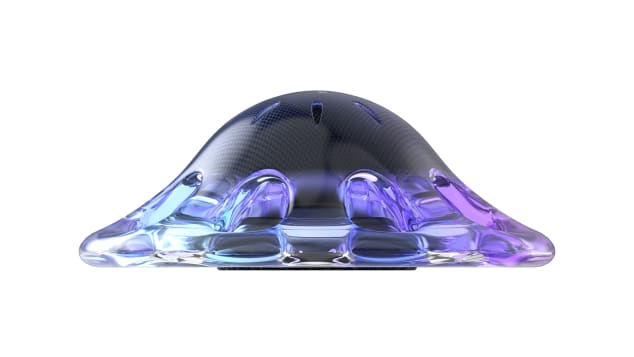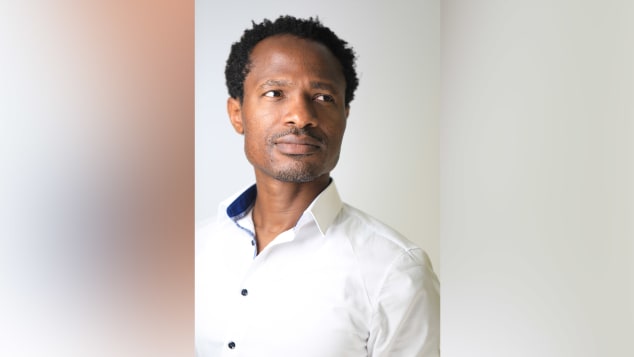Biotechnology startup Koniku is developing high-tech sensors to sniff out bombs. The device, a «Konikore», is made from living biological cells — like the ones found in your nose — that can smell molecular compounds. In December, trials of the device at international airports will begin. Koniku is also investigating whether the device could be used to detect Covid-19. Scroll through to see more technologies designed to make airports safer.
When it comes to finding explosives, sniffer dogs are hard to beat — their noses are so sensitive they can pick up odors emitted from the chemical vapors found in bombs they are trained to detect.
But what if there was a technology that could do just the same, work 24 hours a day and at a fraction of the price?
Koniku, a Silicon Valley-based startup founded by Oshiorenoya Agabi, is trying to develop just that — high-tech sensors made from genetically modified living cells that can detect odors in the air.
«We take biological cells, so living matter, and we modify them to give them capabilities to detect a smell — in the same way that living biological matter in your own nose functions,» Agabi tells CNN.

The cells are fused with a silicon chip that processes odor signals and passes them through a machine learning system for classification, performance improvement and error correction. If a smell is identified as a security threat, the purple, jelly-like device — called a Konikore — lights up.
Having performed well in preliminary tests, Koniku — in partnership with aerospace company Airbus — will start field trials of the devices in December, at Changi Airport in Singapore and San Francisco International Airport.
First line of defense
«Our objective is to provide airports and airlines with 100% situational awareness on the chemical, explosive, bacteriological threat,» says Julien Touzeau, head of product security for Airbus America.
The devices would act as a first line of defense, screening people as they enter the airport — complementing existing methods for detecting bomb threats, such as security scanners and dogs.
Airbus works across the industry to provide security services. The main request it receives from airport partners is to find technology that is able «to detect a potential threat as early as possible,» says Touzeau.

Weighing less than 350 grams and about half the size of a smartphone, the devices could be installed in multiple locations: on the revolving doors at the entrance to a terminal, at check-in desks, or at the entrance to an aircraft.
This would not only make them easier to deploy than their canine counterparts, but more cost-effective.
«Dogs work for 20 minutes maximum, they can be easily distracted, and they are very, very expensive to train — it’s an average cost of $200,000 per dog,» says Touzeau.
The current Koniku prototype is worth around $3,000. Touzeau expects this to drop into the three-figure range once it is mass-produced.
Virus detection
Potential uses for the device do not stop at security, says Agabi. Recently, Koniku has been investigating whether the same technology could be used to detect viruses like Covid-19, following reports that dogs may be trained to sniff it out.
While they cannot detect the actual virus, respiratory diseases cause a change in the body odor of sufferers, which dogs — or «electronic noses,» devices that can detect odors — may be able to pick up on.
Treximo, a biotech consulting firm, is working with Koniku to test whether the devices can be used to detect Covid-19. The firm says that if the trials are successful, it will apply for an emergency-use authorization with the US Food and Drug Administration early next year.
This would transform its potential usage and demand, says Agabi, who envisages the technology being used across a wide range of public spaces, from restaurants to football stadiums.
«In the post-Covid world, the virus is more of an issue than explosives,» he says. «We could allow the screening of millions of people, potentially simultaneously, in shared spaces where economic activities take place.»

Scientific credibility
However, somescientists specializing in electronic noses are skeptical of the technology.
Timothy Swager, a chemistry professor at the Massachusetts Institute of Technology, says that to pull off what Koniku claims would require «some technical miracle.
«Integrating natural proteins into silicon circuits is extremely difficult, he says, and the fragility of cells and the complexity of their interactions with chemical substances makes them hard to work with.
«The e-nose concept has long been problematic and there is a graveyard of companies in this general area,» Swager tells CNN.Kenneth Suslick, a professor at the University of Illinois who specializes in electronic noses, adds that the lack of publications detailing the technology from Airbus, Koniku or a third party, «screams alarm bells.»
«When you have a startup technology like this, the very first thing you want to do is patent,» he says. «After you’ve submitted your patent you want to publish, because those publications give you credibility … and they let other people evaluate the technology.
«Koniku submitted a patent for the technology in 2016, but the results are still pending. Agabi says that since Koniku is a company not an academic research group, «it has been sufficient to share all data with customers under non-disclosure agreements.
«Agabi is confident that Koniku will prove the critics wrong. He says recent trials conducted by Airbus, alongside Alabama law enforcement officials and FBI bomb technicians, found that the devices were able to detect explosives better than trained dogs.
The airport trials are the next big milestone. «It’s the first deployment of the new technology in situ, and we will try to understand how human beings interact with it,» says Agabi.
«Technology can be as advanced and cutting edge as you want, but if it’s not delivering value to people, it’s totally meaningless,» he says.

